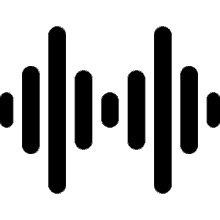Why Distribution Companies Need Sales Management System?
_(19)_1745309594.png)
In today’s fast-paced business environment, distribution companies face unique challenges in managing their sales operations. From coordinating field sales teams to ensuring timely deliveries and maintaining customer satisfaction, the complexities of distribution demand efficient, technology-driven solutions.
Field sales apps, especially when integrated with a Distribution Management System (DMS) or a DMS App, have emerged as game-changers—empowering companies to streamline operations, enhance productivity, and stay competitive.
This blog explores why distribution companies need sales management system or field sales apps, delving into their benefits, key features, and real-world applications!
The Challenges of Traditional Field Sales in Distribution
Distribution companies rely heavily on field sales representatives who are constantly on the move, visiting clients, taking orders, and coordinating with warehouses. Traditional methods, such as paper-based order forms, manual data entry, and phone-based communication, are riddled with inefficiencies. These outdated approaches lead to:
Errors in Order Processing: Manual entry increases the risk of mistakes, such as incorrect product codes or quantities, leading to costly returns or dissatisfied customers.
Delayed Communication: Field reps often struggle to relay real-time updates to the back office, causing delays in inventory updates or order fulfillment.
Lack of Visibility: Managers lack real-time insights into field activities, making it difficult to track performance or optimize routes.
Inefficient Time Management: Reps spend excessive time on administrative tasks, reducing their focus on selling and building customer relationships.
Customer Dissatisfaction: Slow response times and errors erode trust, making it harder to retain clients in a competitive market.
Field sales apps, when paired with a robust Distribution Management System, address these pain points by digitizing and automating critical processes, enabling distribution companies to operate with greater efficiency and accuracy.
Benefits of Sales Management Solution for Distribution Companies
Field sales apps are mobile-first platforms designed to empower sales teams with tools to manage their workflows seamlessly. Here’s why they are indispensable for distribution companies:
Real-Time Data Access and Synchronization
Field sales apps provide instant access to critical data, such as product catalogs, pricing, inventory levels, and customer details. Reps can check stock availability on the go, ensuring they only promise what can be delivered. Real-time synchronization with the company’s ERP, CRM, or DMS App ensures that orders placed in the field are instantly reflected in the back office, reducing delays and errors.
For example, a rep visiting a retailer can use the app to confirm inventory, place an order, and notify the warehouse—all within minutes. This speed enhances customer satisfaction and streamlines operations.
Streamlined Order Management
Field sales apps simplify the order-taking process by offering intuitive interfaces for selecting products, applying discounts, and generating invoices. Features like barcode scanning and digital signatures eliminate paperwork, while automated calculations reduce errors. Reps can also upsell or cross-sell by accessing customer purchase histories and personalized promotions within the app.
By connecting with a Distribution Management System, every order aligns with inventory availability, pricing policies, and delivery schedules, reducing friction and increasing order accuracy.
Enhanced Route Optimization
For field reps covering large territories, time is money. Field sales apps often include GPS-enabled route optimization tools that help reps plan the most efficient paths to visit clients. This reduces fuel costs, increases the number of daily visits, and allows reps to focus on selling rather than logistics.
When linked with a DMS, reps can be routed based on urgent order demands, product shortages, or high-priority customers identified through real-time distributor data.
Improved Team Management and Performance Tracking
Managers gain real-time visibility into field activities through dashboards that track metrics like sales performance, visit frequency, and order volumes. This data helps identify top performers, allocate resources effectively, and coach underperforming reps. Geolocation features also ensure reps are visiting assigned clients, fostering accountability._1745316460.png)
Offline Functionality
Distribution reps often work in areas with poor internet connectivity. Many field sales apps offer offline modes, allowing reps to take orders, access customer data, and perform tasks without an active connection. Once connectivity is restored, the app syncs data seamlessly, ensuring no information is lost.
Better Customer Relationships
Field sales apps enable reps to deliver personalized experiences by providing access to customer preferences, order histories, and credit limits. Reps can tailor their pitches, resolve issues quickly, and build stronger relationships. Additionally, apps often include features like instant order confirmations and delivery tracking, which enhance transparency and trust._1745310274.png)
When powered by a Distribution Management System, customer-specific pricing, product availability, and loyalty program data can be leveraged to strengthen relationships and drive repeat business.
Cost Savings and Scalability
By automating manual processes and reducing errors, field sales apps lower operational costs. Digital records eliminate the need for paper-based systems, while streamlined workflows reduce administrative overhead. As distribution companies grow, these apps scale effortlessly, supporting larger teams and more complex operations.
A DMS App supports this scale by unifying distributor operations across regions, providing a consistent foundation for growth, and maintaining real-time control over primary and secondary sales.
Key Features to Look for
Not all field sales apps are created equal. When choosing a solution, distribution companies should prioritize features that align with their needs:
Mobile-Friendly Interface: A user-friendly design ensures quick adoption by field reps.
Integration Capabilities: Seamless integration with ERP, CRM, and DMS software is critical for real-time data flow.
Customizable Workflows: The app should adapt to the company’s unique sales processes.
Analytics and Reporting: Robust reporting tools provide insights into sales trends and team performance.
Security Features: Data encryption and role-based access protect sensitive customer and business information.
Multi-Language Support: For companies operating in diverse regions, multi-language capabilities are a plus.
Real-World Impact of Sales Management Solution
Field sales apps deliver measurable results for distribution companies. A mid-sized beverage distributor implemented a field sales app to equip its reps with real-time inventory visibility and order management tools. As a result, order processing time dropped by 30%, reps increased daily customer visits by 15%, and the company saw a 10% rise in overall sales within six months.
Similarly, a pharmaceutical distributor leveraged a field sales app to ensure compliance with regulatory standards. The app’s offline functionality allowed reps to operate seamlessly in remote areas, while integration with the company’s ERP and DMS App streamlined inventory management. As a result, the distributor achieved a 15% boost in operational efficiency and a 10% increase in order accuracy, reinforcing customer trust and operational reliability.
Overcoming Resistance to Adoption
Despite their benefits, some distribution companies hesitate to adopt field sales apps due to concerns about cost, training, or resistance from reps accustomed to traditional methods. To overcome these barriers:
Demonstrate Value: Highlight how the app saves time, reduces errors, and boosts sales through pilot programs or case studies.
Provide Training: Offer hands-on training sessions and ongoing support to ensure reps feel confident using the app.
Start Small: Roll out the app to a small team before scaling to the entire organization.
Choose a Scalable Solution: Opt for a cost-effective app that grows with the business, minimizing upfront investment—and choose one that integrates seamlessly with your Distribution Management System.
The Future of Sales Apps in Distribution
With rapid technological advancements, field sales apps are becoming increasingly advanced, offering powerful tools for distribution companies. Virtual reality (VR) capabilities could soon allow sales reps to present immersive product demonstrations, enhancing customer engagement.
Additionally, integration with IoT systems and DMS software may enable seamless monitoring of supply chains, providing real-time insights into inventory levels, route efficiency, and delivery schedules. These cutting-edge features will significantly elevate the efficiency and impact of field sales apps in the distribution industry._1745317552.png)
Conclusion
Field sales apps or Sales management solution are no longer a luxury—they are a necessity for distribution companies aiming to stay competitive. By addressing the inefficiencies of traditional sales processes, these apps empower reps, delight customers, and drive operational excellence.
From real-time data access to route optimization and performance tracking, the benefits are undeniable. When paired with a powerful DMS App, the field sales process becomes a data-driven, insight-rich, scalable engine for growth.
As the industry continues to evolve, adopting a field sales app is a strategic investment that positions distribution companies for long-term success.
FAQs
Q: What is a field sales app?
A: A field sales app is a mobile application designed to streamline the workflows of field sales representatives. It provides tools for order management, inventory tracking, route optimization, and customer relationship management, all accessible on a smartphone or tablet.
Q: How do field sales apps improve efficiency?
A: They automate manual tasks like order entry, provide real-time data access, and optimize routes, reducing errors and saving time. This allows reps to focus on selling and building customer relationships.
Q: Are field sales apps expensive?
A: Costs vary depending on the app’s features and scalability. Many providers offer tiered pricing, making it affordable for small to large businesses. For specific pricing, check with vendors like Salesforce or Zoho.
Q: Can field sales apps work offline?
A: Yes, many apps offer offline functionality, allowing reps to perform tasks in areas with poor connectivity. Data syncs automatically once an internet connection is available.
Q: How do field sales apps integrate with existing systems?
A: Most apps are designed to integrate with ERP, CRM, and Distribution Management Systems (DMS) via APIs, ensuring seamless data flow across platforms.
Q: What kind of training is required for reps to use these apps?
A: Most field sales apps have intuitive interfaces, requiring minimal training. Providers often offer tutorials, webinars, and support to ensure smooth adoption.
Q: Are field sales apps secure?
A: Reputable apps use encryption, secure cloud storage, and role-based access to protect sensitive data. Always verify the provider’s security certifications before purchasing.









